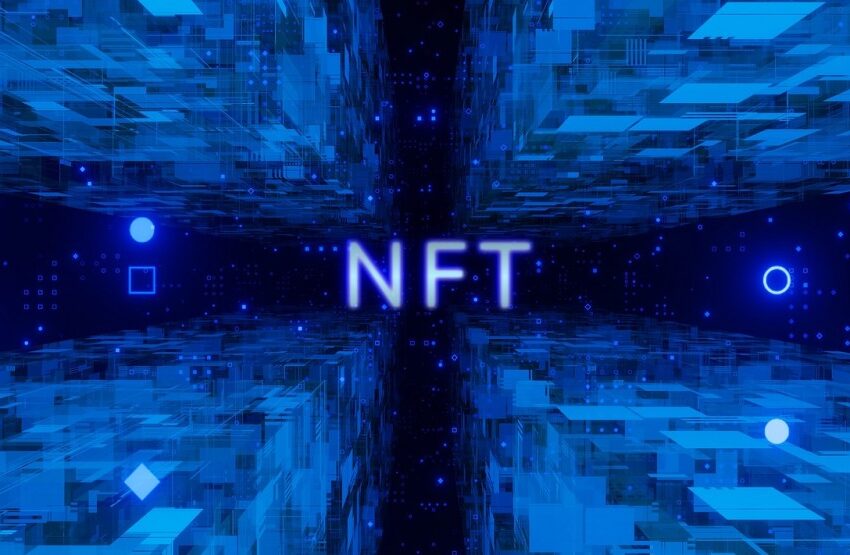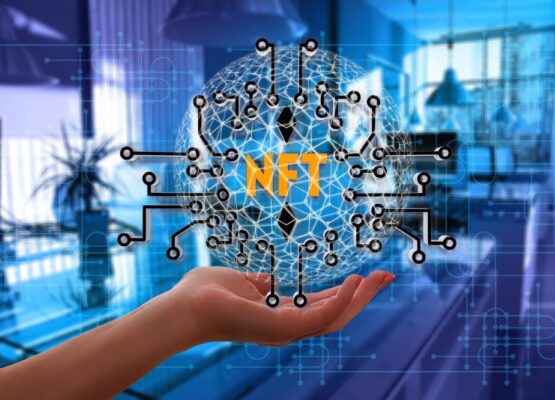Introduce the concept of NFT marketplaces: Start by explaining what NFTs are and how they are used in marketplaces. Provide a brief overview of the benefits of NFTs, such as their immutability, transparency, and security
NFTs, or Non-Fungible Tokens, are digital assets that represent ownership or proof of authenticity of a unique item or asset, such as digital art, music, collectibles, or in-game items. NFTs are created using blockchain technology, which makes them immutable, transparent, and secure.
NFT marketplaces are platforms where creators and collectors can buy, sell, and trade NFTs. These marketplaces offer a range of benefits, including increased ownership and value of assets, new revenue streams for creators and businesses, and new ways for collectors to invest in and display their collections.
One of the key benefits of NFTs is their immutability. Once an NFT is created and recorded on a blockchain, it cannot be altered or deleted, ensuring the authenticity and ownership of the asset. NFTs are also transparent, allowing anyone to view the history of ownership and transactions associated with the asset.
Additionally, NFTs provide a high level of security, as they are encrypted using complex algorithms that make them difficult to counterfeit or steal. This gives creators and collectors confidence in the authenticity and value of their assets.
Overall, NFT marketplaces offer a new and exciting way for creators, collectors, and businesses to leverage blockchain technology and create value in the digital space. With their immutability, transparency, and security, NFTs provide a powerful tool for verifying ownership and authenticity, and unlocking new revenue streams in various industries.
Gaming industry: Discuss the potential of NFTs in the gaming industry. Explain how NFTs can be used to represent unique in-game items, such as weapons or skins. Discuss the benefits of using NFTs in gaming, such as increased ownership and value of in-game items, as well as new revenue streams for game developers
The gaming industry is one of the most promising areas for the adoption of NFTs, as it offers a range of opportunities for creating and trading unique in-game items. NFTs can be used to represent anything from weapons and skins to characters and virtual real estate.
One of the main benefits of using NFTs in gaming is the increased ownership and value of in-game items. With NFTs, players can truly own their in-game assets, as the tokens represent the unique ownership and authenticity of the items. This provides a new level of ownership and control for players, as they can trade, sell, or even loan their assets to other players.
Moreover, NFTs can also add significant value to in-game items, as the scarcity and uniqueness of each asset can be verified through the blockchain technology. This creates a new economy for gaming, where players can invest in rare and unique assets, similar to how collectors invest in rare physical items such as stamps or coins. This can lead to increased engagement and loyalty from players, who can build and showcase their collections to other players.
In addition, NFTs also offer new revenue streams for game developers, who can create and sell unique in-game items as NFTs on marketplaces. This opens up new opportunities for game developers to monetize their games beyond traditional means, such as subscriptions or microtransactions.
Overall, the use of NFTs in gaming provides a new level of ownership, value, and engagement for players, while also providing new revenue streams for game developers. As the adoption of NFTs continues to grow in the gaming industry, we can expect to see new and innovative ways for players and developers to leverage this technology and unlock new possibilities in gaming.
Art industry: Explore the potential of NFTs in the art industry. Explain how NFTs can be used to represent unique pieces of art, including digital art, music, and other creative works. Discuss the benefits of using NFTs in art, such as increased ownership and value of artwork, as well as new revenue streams for artists and creators
NFTs have the potential to revolutionize the art industry, particularly for digital art, music, and other creative works. NFTs can be used to represent unique pieces of art, allowing artists and creators to verify the ownership and authenticity of their works on the blockchain.
One of the main benefits of using NFTs in the art industry is the increased ownership and value of artwork. With NFTs, artists can truly own their creations, as the tokens represent the unique ownership and authenticity of their works. This provides a new level of control and protection for artists, as they can sell and trade their works as NFTs on marketplaces, with the blockchain verifying the ownership and authenticity of each piece.
Moreover, NFTs can also add significant value to artworks, as the scarcity and uniqueness of each piece can be verified through the blockchain technology. This creates a new economy for art, where collectors can invest in rare and unique artworks, similar to how they invest in rare physical items such as paintings or sculptures. This can lead to increased revenue for artists and creators, as they can earn royalties or even receive a percentage of the resale value of their works on marketplaces.
Additionally, NFTs can also provide new ways for artists and creators to engage with their audiences, as they can create and distribute exclusive digital content as NFTs. This creates a new level of interaction between artists and their fans, who can invest in and collect unique works from their favorite creators.
Overall, the use of NFTs in the art industry provides a new level of ownership, value, and engagement for artists and collectors, while also providing new revenue streams for artists and creators. As the adoption of NFTs continues to grow in the art industry, we can expect to see new and innovative ways for artists and creators to leverage this technology and unlock new possibilities in art.
Music industry: Discuss the potential of NFTs in the music industry. Explain how NFTs can be used to represent unique music tracks, albums, or other music-related items. Discuss the benefits of using NFTs in music, such as increased ownership and value of music assets, as well as new revenue streams for artists and record labels
The music industry is also ripe for the adoption of NFTs. NFTs can be used to represent unique music tracks, albums, or other music-related items, allowing artists and record labels to verify the ownership and authenticity of their assets on the blockchain.
One of the main benefits of using NFTs in the music industry is the increased ownership and value of music assets. With NFTs, artists and record labels can truly own their music assets, as the tokens represent the unique ownership and authenticity of their works. This provides a new level of control and protection for artists and record labels, as they can sell and trade their music as NFTs on marketplaces, with the blockchain verifying the ownership and authenticity of each asset.
Moreover, NFTs can also add significant value to music assets, as the scarcity and uniqueness of each asset can be verified through the blockchain technology. This creates a new economy for music, where collectors can invest in rare and unique music assets, similar to how they invest in rare physical items such as vinyl records or CDs. This can lead to increased revenue for artists and record labels, as they can earn royalties or even receive a percentage of the resale value of their music assets on marketplaces.
Additionally, NFTs can also provide new ways for artists and record labels to engage with their audiences, as they can create and distribute exclusive digital content as NFTs. This creates a new level of interaction between artists and their fans, who can invest in and collect unique music assets from their favorite artists.
Overall, the use of NFTs in the music industry provides a new level of ownership, value, and engagement for artists, record labels, and music collectors, while also providing new revenue streams for the industry. The development of NFT marketplaces for music assets is also on the rise, providing a new platform for the distribution and monetization of music assets. As the adoption of NFTs continues to grow in the music industry, we can expect to see new and innovative ways for artists and record labels to leverage this technology and unlock new possibilities in music.
Other industries: Discuss the potential of NFTs in other industries, such as real estate, fashion, and sports. Explain how NFTs can be used to represent unique items in these industries and the benefits of using NFTs in each industry
Apart from gaming, art, and music, NFTs have the potential to revolutionize other industries as well, including real estate, fashion, and sports.
In the real estate industry, NFTs can be used to represent unique properties, such as buildings, land, or even virtual real estate in virtual worlds. NFTs can help streamline the buying and selling process by creating a secure and transparent record of ownership, title, and other important details of each property. This can help reduce fraud, increase transparency, and simplify the process of transferring ownership of properties. Moreover, NFTs can also provide a new way for investors to invest in real estate assets, similar to how they invest in other collectible assets.
In the fashion industry, NFTs can be used to represent unique and limited-edition fashion items, such as sneakers, handbags, or designer clothing. NFTs can help verify the authenticity and ownership of each item, which is particularly important in the luxury fashion industry where counterfeiting is a major issue. Additionally, NFTs can also provide a new way for fashion brands to engage with their audiences and create exclusive digital content, such as virtual fashion shows or exclusive digital collections, that can be sold as NFTs.
In the sports industry, NFTs can be used to represent unique sports memorabilia, such as trading cards, jerseys, and other collectible items. NFTs can help verify the authenticity and ownership of each item, which is particularly important in the sports memorabilia market where fraud is a major issue. Moreover, NFTs can also provide a new way for sports teams and leagues to engage with their fans and create exclusive digital content, such as digital collectibles, game highlights, and other unique experiences that can be sold as NFTs.
In all of these industries, the use of NFTs provides a new level of ownership, value, and engagement for buyers and sellers, while also providing new revenue streams for businesses. As the adoption of NFTs continues to grow in these industries, we can expect to see new and innovative ways for businesses to leverage this technology and unlock new possibilities. The development of NFT marketplaces for these industries is also on the rise, providing a new platform for the distribution and monetization of NFT assets.
Challenges and future outlook: Discuss the challenges that each industry may face when using NFTs and how these challenges can be addressed. Also, explore the future outlook of NFT marketplaces in these industries and what the potential implications could be
While NFTs offer many benefits for various industries, there are also some challenges that need to be addressed to ensure their successful integration.
One of the main challenges for NFTs in any industry is the potential for fraud and counterfeiting. NFTs are based on blockchain technology, which provides security and immutability, but there is always the possibility of hackers or bad actors exploiting vulnerabilities in the system. To address this challenge, NFT marketplaces need to implement robust security measures and provide users with tools to verify the authenticity of NFT assets.
Another challenge for NFTs in some industries, such as art and music, is the potential for copyright infringement. While NFTs provide a new way for artists and creators to monetize their work, it also raises questions about ownership and copyright. To address this challenge, NFT marketplaces need to ensure that all assets are properly licensed and that creators are fairly compensated for their work.
Looking to the future, NFT marketplaces are expected to continue to grow and expand into new industries. As more businesses and consumers become familiar with NFTs, we can expect to see new and innovative uses for this technology. For example, in the gaming industry, NFTs could be used to create new revenue streams for game developers by allowing players to buy and sell virtual assets within the game.
Moreover, NFT marketplaces are also expected to become more user-friendly, making it easier for individuals and businesses to create and trade NFTs. This could lead to increased adoption and growth in the overall NFT market.
Overall, the potential implications of NFT marketplaces in various industries are vast, from increased ownership and value of assets to new revenue streams for businesses and creators. As the technology continues to evolve, it will be important for businesses to stay up to date on the latest NFT developments and trends in NFT marketplace development, in order to fully leverage the benefits of this technology.
Conclusion: Summarize the potential of NFT marketplaces for various industries and emphasize the importance of exploring new ways to use this technology to create value and new revenue streams for businesses and creators
In conclusion, NFT marketplaces hold immense potential for various industries, including gaming, art, music, real estate, fashion, and sports. NFTs can be used to represent unique assets, such as in-game items, digital art, music tracks, real estate properties, fashion items, and sports memorabilia, providing increased ownership and value of these assets. NFTs also offer new revenue streams for businesses and creators, enabling them to monetize their work and tap into new markets.
However, integrating NFTs into different industries also presents various challenges, including security, authenticity, and copyright infringement. It is important for NFT marketplaces to implement robust security measures and ensure that all assets are properly licensed to address these challenges.
Looking to the future, NFT marketplaces are expected to continue to grow and expand into new industries, creating new opportunities for businesses and creators. As such, it is important for businesses and individuals to explore new ways to use this technology to create value and new revenue streams, and stay up to date with the latest developments in NFT marketplace development and trends.
Overall, NFT marketplaces have the potential to revolutionize the way we think about ownership, value, and commerce in various industries, paving the way for a more inclusive and decentralized economy.




